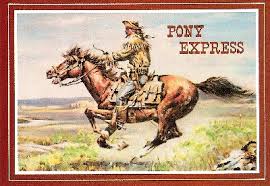Archive for May, 2013
Protest vocabulary Posted by Gabriele on May 30, 2013
Living in the capitol city of the United States, Washington, DC, I see and hear a lot of different protests. Protesters often come from around the country and the world to meet together in this city to make their wants and desires about political, systemic and environmental change known. Today I thought I would introduce…
Easy English – Daily Activities Posted by sasha on May 29, 2013
Learn how to talk about your daily activities with this easy-to-follow video. Watch the video, and then try to talk about your day! “I get up at 8 o’clock in the morning. Then, I have breakfast, I like to eat eggs, bacon, and a bagel. I have a cup of coffee and surf the Internet…
Tag questions in English are easy to make, aren’t they? Posted by Gabriele on May 28, 2013
There are a number of ways to ask questions in English. You can ask a simple yes or no question: Do you like milk? Or you can ask a wh- questions: Where is the milk? Another way to ask questions in English is by using tag questions: You bought milk yesterday, didn’t you? Tag questions…
Goodbye in English Posted by Gabriele on May 23, 2013
So long, farewell…no, wait, don’t go yet I am just getting started! What I meant to say was “hello” and “welcome” to today’s post about saying “goodbye!” To start out take a listen to this song from the classic American film The Sound of Music in which the children in the film are singing about…
Hello in English Posted by Gabriele on May 21, 2013
When you first greet someone in English you can say ‘hello’ or you could spice up your greeting with a number of other ways of saying ‘hi.’ This post is all about different ways you can say ‘hello’ in English. To start let’s look at one of my favorite ways for saying ‘hello,’ which was…
If I wanted to learn about conditional sentences, I would read this post. Posted by Gabriele on May 16, 2013
Conditional sentences (sentences containing “if”) usually have two parts. One part is the result and the other part is the condition that the result depends on. To figure out which part of the sentence is which you just need to locate the word “if.” The condition of the sentence usually comes right after the word…
The Pony Express – how mail used to travel. Posted by Gabriele on May 14, 2013
Today I have a little American history lesson for you about something called the Pony Express. The Pony Express is piece of American history that most Americans learned about at some point in school. It is also the subject of a number of movies about “the wild west” of the United States. The Pony Express…




